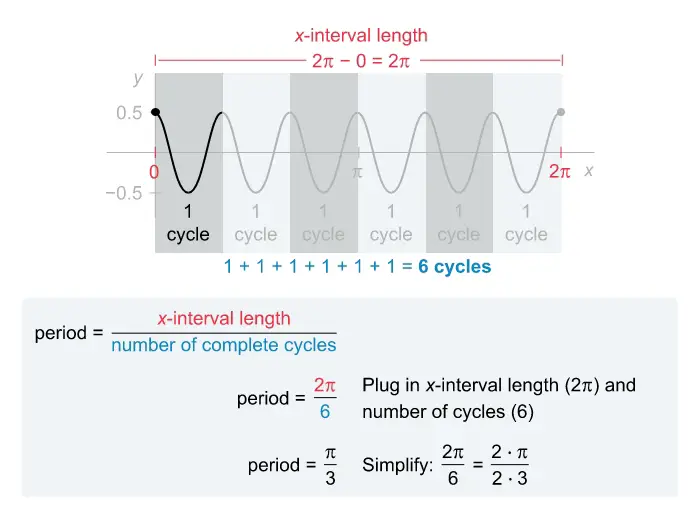About ACT® Math Test
ACT® Math is one of the four component tests of the ACT and contributes 25% to your final ACT score. If you are preparing for the upcoming ACT Math Test, it is crucial you nail this section to boost your total ACT score as much as possible. Our ACT Math guide will walk you through the format, topics, and question types you can expect on the test so you can plan your test prep schedule efficiently and earn a high ACT Math score.
ACT Math Format and Topics
The ACT Math Test evaluates the mathematical skills you learned in your high school math courses up to the start of grade 12. The test runs for 60 minutes during which you have to answer 60 multiple-choice questions (MCQs), giving you just 1 minute to answer each question.
You will get a mix of self-contained and set-based questions, meaning some questions are standalone, while other questions come in a set pertaining to a single graph, chart, or information. While the ACT Math section does not provide you with a formula sheet at the time of the test, you are allowed to use your calculator throughout the test.
Score a 34+ on the ACT without being a genius.
Let us help with your test prep and make the hardest questions easier to answer.

What is tested on the ACT Math section?
The test material covers the below essential topics for introductory math courses in college; and, therefore, you will be required to have a thorough knowledge of basic ACT mathematical formulas as well as computational skills. Based on the topics and concepts tested, there are seven broad categories of questions on the ACT Math Test:
| Topics | No. of questions |
|---|
| Integrating Essential Skills | 24 – 26 |
| Modeling | 15 |
| Algebra | 7–9 |
| Functions | 7–9 |
| Geometry | 7–9 |
| Statistics and Probability | 4–7 |
| Number and Quantity | 4–6 |
Now, let’s understand the categories under which the ACT Math Test evaluates you:
- Preparing for Higher Math: Topics and concepts involving algebra, geometry and trigonometry.
- Integrating Essential Skills: Your skills in solving complex mathematical problems using topics, concepts, and formulas.
- Modeling: Your ability to understand, produce, interpret, evaluate, and improve models across a variety of mathematical topics.
By prioritizing your studying and practice work based on how heavily the question types appear in the exam, you can allocate your time to the material efficiently. Now, let’s take a look at which topics are more common than others on the ACT Math Test:
- Integrating Essential Skills There will be a total of 24–26 questions to evaluate your basic mathematical skills on the ACT Math test. These questions will focus on elementary topics that you would’ve covered in high school. Some of the skills tested are rates and percentages, proportional relationships, surface area and volume, and averages and medians. These question types are the most common on the ACT Math test.
- Modeling There will be a total of 15 or more of these questions on the ACT Math test. Modeling questions make up more than a quarter of the Math test, and according to ACT.org, these questions assess your skills in creating, understanding, and evaluating models, and correcting them if required. These models pertain to any of the topics covered in the Math section.
- Algebra There will be a total of 7–9 of these questions on the ACT Math test. To do well with these questions, you will need to understand different types of equations such as linear, exponential, radical, and polynomial expressions.
- Functions There will be a total of 7–9 of these questions on the ACT Math test. Your ability to define functions, write in function notation, apply functions, and represent functions in various forms is necessary to solve these questions. You will likely have to translate different kinds of functions and evaluate relationships in graphs.
- Geometry There will be a total of 7–9 of these questions on the ACT Math test. ACT.org states that these questions require skills in assessing the composition of shapes and an ability to define relationships. You can also expect some of these questions to ask you to solve for surface area, volume, or missing values.
- Statistics and Probability There will be a total of 4–7 of these questions on the ACT Math test. These questions test your skills in assessing sampling methods and relationships in data. Expect to find the measure of center and pinpoint relationships (like the spread of distribution in the data). You can also expect to find probabilities in these questions.
- Number and Quantity There will be a total of 4–6 of these questions on the ACT Math test. To do well on these questions, you will need to study and practice working with various numerical forms. According to ACT.org, these questions include real numbers, complex numbers, integer numbers, rational exponents, vectors, and matrices. Note that this is the least commonly tested topic in the ACT Math exam.
Our guide to the ACT Syllabus will help you learn more about each assessment category tested on the ACT Math section.


